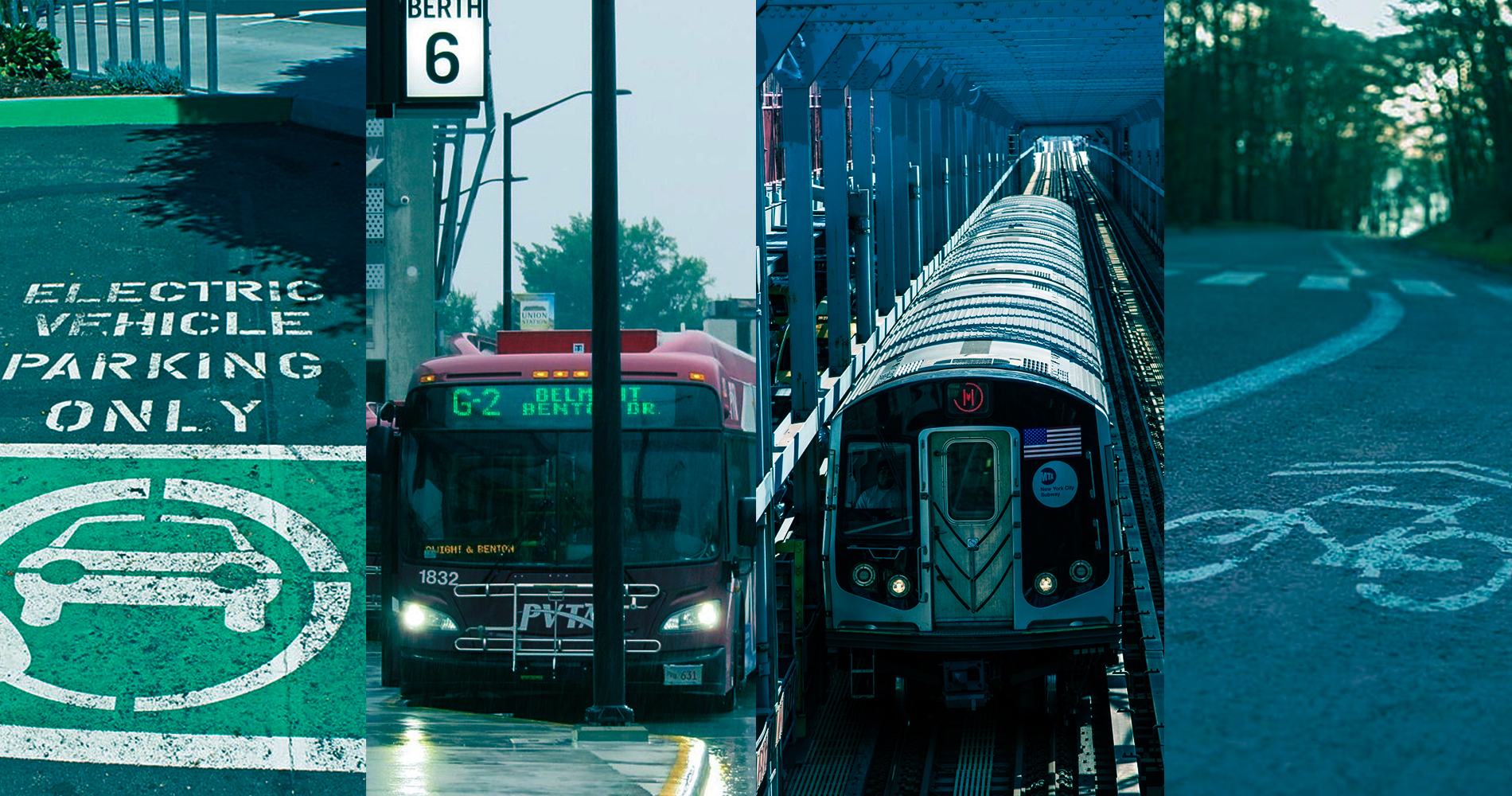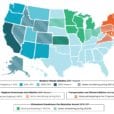As the public comment period wraps up for the Transportation and Climate Initiative (TCI) next week, states are preparing for the last push to finalize a Memorandum of Understanding (MOU) by the spring.
The public got their first glimpse of the program’s potential ambition and design back in December, when the states released a barebones draft MOU, as well as preliminary modeling results on a range of scenarios. Since then, states have given the public until February 28th to submit their thoughts via an open online comment portal, after which negotiations begin on a fully designed program.
Many policy details remain to be ironed out, but that hasn’t prevented ruminations on TCI’s political and economic implications from rippling throughout media, legislatures, and stakeholder groups.
Let’s review what we know and what we can expect next in the process:
What is TCI?
TCI is a cap-and-invest program on transportation emissions. Distributors of gasoline and diesel will have to submit pollution permits for the fuels they sell in participating states. These permits will be purchased at government auctions, raising significant revenue that states can invest into clean transportation programs and infrastructure.
Read more about TCI on our Regional Cap-and-Invest Page
Who is considering TCI?
Right now, TCI is under consideration in Connecticut, Delaware, Maine, Maryland, Massachusetts, New Jersey, New York, Pennsylvania, Rhode Island, Vermont, Virginia, and Washington DC.
New Hampshire Governor Chris Sununu (R) declared that his state would not participate in the TCI program, although state legislators are expressing enthusiasm for TCI in the Granite State.
How ambitious do we expect the program to be?
Modeling released in December suggests that we expect transportation emissions in the region to drop 19% between 2022 and 2032 without any TCI program due to increasing fuel efficiency and affordable electric vehicles.
States are eyeing a TCI program that adds 1% to 6% to this reduction, resulting in a 20% to 25% reduction in transportation emissions in 10 years. However, as we’ve seen with existing cap-and-invest programs, the states will set up periodic reviews to up the climate ante in future years.
What kind of benefits are we expecting from TCI?
The more ambitious the TCI program is, the more money we raise for clean transportation investment. Should states choose the 25% reduction scenario, the program could create:
- $68 billion in revenue over over 10 years to invest in clean, safe, accessible transportation
- Over $10 billion in public health benefits per year, including avoiding 1,000 premature deaths, 1,300 asthma attacks, and 1,700 traffic injuries per year.
- Net cost savings of nearly $5 billion for consumers through reduced reliance on gasoline and diesel.
Here’s what kind of revenue states could raise in the first year of the program:
| State | Year 1 Revenue |
| Connecticut | $270 million |
| Delaware | $85 million |
| Maine | $175 million |
| Maryland | $500 million |
| Massachusetts | $485 million |
| New Hampshire* | $120 million |
| New Jersey | $775 million |
| New York | $1.1 billion |
| Pennsylvania | $1.1 billion |
| Rhode Island | $65 million |
| Vermont | $60 million |
| Virginia | $845 million |
| Washington D.C. | $20 million |
| Region-Wide | $5.6 billion |
*Governor Sununu announced on twitter that New Hampshire wouldn’t participate in TCI, but we’re leaving them in this table to show what kind of clean transportation investment he is depriving our New Hampshire readers of.
What’s happened since December?
Since first details on TCI came out in December, a flurry of jumbled narratives and speculations have circulated media outlets and statehouses regarding the wavering support of some governors on TCI, including Vermont Gov. Phil Scott (R) and Connecticut Gov. Ned Lamont (D). In addition, a confluence of free-market and conservative groups, many of which with documented ties to oil and gas industry funding, have circulated false narratives on gas taxes and runaway fuel prices.
In reality, everything is right on schedule. From the outset of this program’s development, no state has been expected to commit to the TCI program prior to having an MOU finalized. Once that milestone is reached this spring, Governors have until the end of the year to sign an actual Model Rule in their respective states. From the perspective of state administrations, the logical move is to withhold a clear commitment until there is an actual program to commit to.
However, not all governors are waiting until the spring to voice support. Massachusetts Governor Charlie Baker (R), whose administration has played a leadership role in the development of TCI, made his intentions clear to join TCI in recent official statements and radio interviews. Rhode Island Gov. Gina Raimondo (D) also expressed vocal support for TCI.
Moreover, recent polling finds that two-thirds of voters in Connecticut, Maryland, Massachusetts, New Jersey, New York, Pennsylvania, and Virginia support the idea that “companies distributing gasoline and diesel fuel should pay for the pollution they create, with the proceeds being available to states to make transportation better, leaner, and more resilient to the effects of climate change.”
What’s Next?
Administrations will wrap up the public comment period on February 28th and begin to finalize a MOU for the coming spring. During this time, Our Transportation Future, a region-wide broad coalition in support of clean transportation in the Northeast and Mid-Atlantic, will continue to meet fossil fuel and conservative interest groups head-on around the regional narrative on TCI.
Once a final MOU is agreed upon by all states, governors will have until December 31st to sign a Model Rule for their state to officially join the program. That will give states a year to pass any additional statutes or regulations needed to start the program smoothly in 2022.
If you’d like to express support for your governor to join the TCI program, be sure to drop a comment in the online portal before February 28th.









